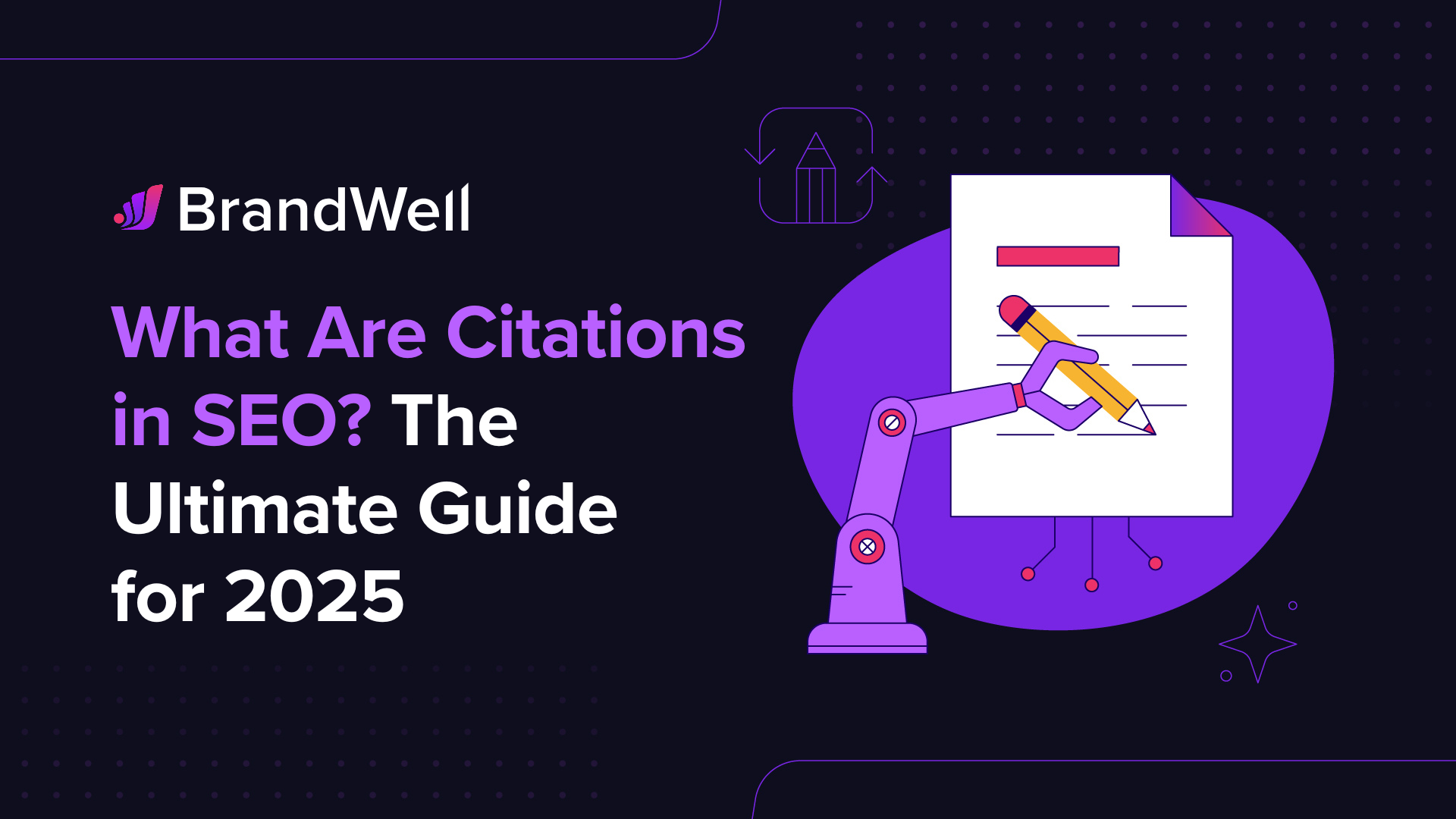You’ve built a fantastic website for your local business, but you’re not seeing the search rankings you expected. What’s missing? The answer might be citations.
What are citations in SEO?
Citations refer to mentions of your business name, address, and phone number (NAP) on other websites, typically in directories or listings.
These citations are important because search engines like Google use them to determine the relevance and authority of your business in a particular geographic area.
In the world of local SEO, citations play a crucial role in establishing your business’s online presence and credibility.
Let’s dive into the nitty-gritty details of what are citations in SEO, their importance, types, and best practices for managing them effectively.
Table Of Contents:
- What Are Citations in SEO?
- How to Build Citations for Your Business
- The Role of Data Aggregators in Local Citations
- How Citations Influence Local Search Rankings
- The Impact of Local Citations on Your Online Presence
- Best Practices for Managing Local Citations
- FAQs: What Are Citations in SEO?
- Conclusion
What Are Citations in SEO?
In SEO, a “citation” refers to any online mention of your business name, address, and phone number (commonly called NAP). They can be found on websites, apps, social platforms, review sites, and business directories — essentially, anywhere your business information is displayed online.
These citations are critical for improving local SEO, as they help search engines confirm the accuracy and legitimacy of your business information.
There are two primary types of local citations — structured and unstructured — as well as a handful of citations published on specialized platforms such as industry-specific directories and review sites.
Structured Citations
Structured citations follow a consistent format like business listings in directories such as Yellow Pages and Google My Business. These citations display your NAP information in a consistent, structured format.
Examples:
- Google Business Profile: Listings on Google Maps with business details, reviews, and photos.
- Yelp: Business profiles with ratings, reviews, hours, and contact information.
- Yellow Pages: Traditional directory format for business listings.
- Bing Places: Microsoft’s alternative to Google Business Profile.
Unstructured Citations
On the other hand, unstructured citations are mentions of your NAP information on any other websites that are not specifically structured for business listings. They may not always include complete NAP details but still contribute to SEO.
Examples:
- A local news article about your business or event.
- A blog post recommending your services, such as “Top 10 Cafés in Downtown Chicago.”
- A mention in a community forum or social media post (e.g., someone tagging your business on Instagram).
Local and Industry-Specific Directories
These citations appear on websites tailored to specific regions or industries. They help businesses reach their target audience more effectively.
Examples:
- Local Directories: Chamber of Commerce websites, local tourism websites.
- Industry-Specific Directories: OpenTable and Zomato for restaurants, Avvo and FindLaw for law firms, and Zillow and Realtor.com for real estate.
Aggregator Citations
Aggregator websites collect and distribute business data to other platforms. Ensuring accurate information here is crucial as errors can spread widely.
Examples:
- Data Axle (formerly Infogroup)
- Neustar Localeze
- Acxiom
- Factual
- Foursquare
Social Media Profiles
Social media platforms often act as citations when businesses include their NAP in their profiles.
Examples:
- Facebook Business Pages
- Instagram Business Profiles
- LinkedIn Company Pages
- Twitter Profiles with location and contact details
Review Sites
Platforms where customers leave reviews about a business often include business details, contributing to citation value.
Examples:
- Yelp
- TripAdvisor
- Trustpilot
- Angie’s List
Maps and Navigation Services
Listings on mapping services help local customers find businesses and contribute to visibility.
Examples:
- Google Maps
- Apple Maps
- Waze
- Here WeGo
Event Listings
Citations can be generated from event announcements that include your business details.
Examples:
- Eventbrite
- Meetup
- Local newspaper event pages
How to Build Citations for Your Business
Now that we’ve covered what local citations are and why they matter for SEO, let’s discuss how to build them for your business.
Step 1: Gather Your Business Info (NAP Is Key!)
Before you start, make sure your business details are rock solid. You’ll need your Name, Address, and Phone Number (NAP) — and it needs to be consistent everywhere it appears.
💡 Pro Tip: Double-check your info down to punctuation. Even a small difference like using “St.” versus “Street” can confuse search engines. Make sure all your details match across every directory you submit to.
Step 2: Create or Claim Your Google Business Profile
The first citation you should create is on Google Business Profile (GBP). It’s the holy grail of local citations. Claiming or creating your Google business profile gets you on Google Maps and in local search results.
To do this:
- Head to Google Business Profile.
- Log in with your Google account.
- Follow the prompts to either claim an existing listing or create a new one.
- Add your NAP details.
Google’s verification process might take a few days, but once your profile is live, you’ll be easy to find.
💡 Pro Tip: Besides your NAP, include other relevant information like your website URL, business hours, store photos, and a brief description of your products or services. The more complete and accurate your listings are, the better.
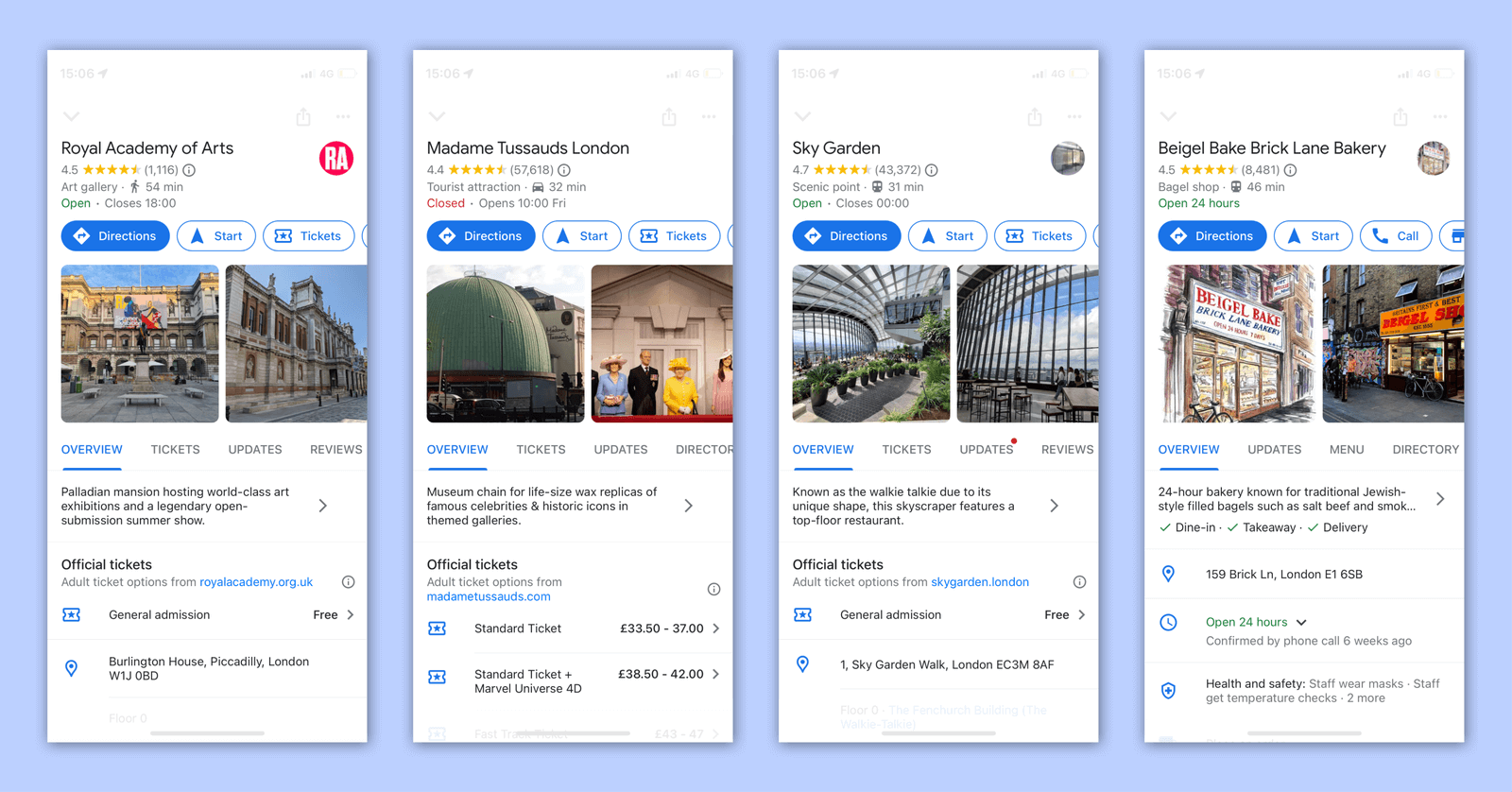
Examples of Google business profiles
Step 3: Submit to Major Directories
Once your Google Business Profile is set up, it’s time to get your business listed on other popular directories. These sites are like digital Yellow Pages that help your visibility and build your online presence.
- Sign up or log in to platforms like Yelp, Bing Places, and Facebook Business.
- Enter your NAP details and any extras like a website link or operating hours.
- Don’t forget to verify your business if the platform asks!
These listings make your business more discoverable, and they also help search engines trust your information.
💡 Quick Wins: Other biggies include Yellow Pages, TripAdvisor, and Apple Maps.
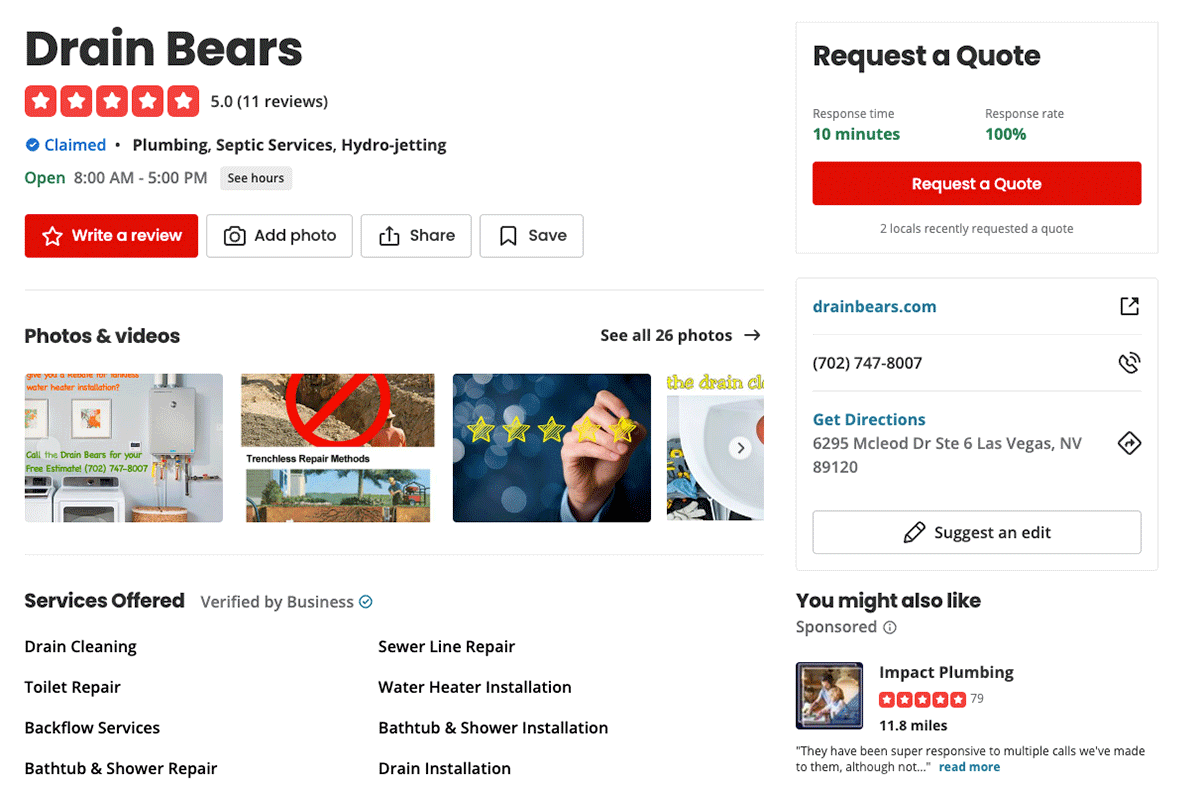
Example of a Yelp business profile
Step 4: Get on Local and Niche Directories
Now it’s time to zoom in on your specific industry or city. Local and industry-specific directories are essential for reaching the right customers.
- Local directories: Look for city-based platforms such as your Chamber of Commerce’s website.
- Industry-specific directories: If you’re a restaurant, head to OpenTable. If you’re a lawyer, get on Avvo.
Getting on these directories makes your business more visible to people specifically searching for your products or services.
💡 Pro Tip: A quick Google search for “Best [Your Industry] Directories” will point you in the right direction.
OpenTable listing for restaurants in Scottsdale, Arizona
Step 5: Leverage Data Aggregators
Let the pros do the heavy lifting! Data aggregators are platforms that distribute your business information to dozens (sometimes hundreds) of smaller directories.
Submitting your details to aggregators like Data Axle, Localeze, and Factual allows your business info to be spread across hundreds of websites without you having to submit each one manually. This not only saves time but ensures your business reaches a wide audience.
💡 Heads-Up: These services often charge a fee, but they’re worth it for the exposure they offer.
Step 6: Build Citations on Review Sites
Online reviews are powerful for SEO and trust-building. Review sites like Yelp, Trustpilot, and Angie’s List are not only valuable for customer feedback but also serve as citations. These platforms often display your NAP information alongside reviews, helping improve your search engine rankings.
- Create a profile on Yelp, Trustpilot, and Angie’s List.
- Encourage your customers to leave honest reviews. (Bonus points if they mention your location!)
💡 Pro Tip: Monitor reviews and respond when needed to show you care about your customers. This shows you’re engaged and builds loyalty.

Trustpilot reviews for email service providers in the U.S.
Step 7: Don’t Forget Social Media
Social media profiles can also count as citations when you add your NAP details to your business pages. Platforms like Facebook, Instagram, and LinkedIn allow you to enter your business’s address and phone number, which search engines can use to verify your information.
Keeping your business profiles up-to-date with accurate details helps improve your SEO and ensures that potential customers find the right contact info when they search for your business.
💡 Pro Tip: Use location tags in posts to boost your local visibility even more.
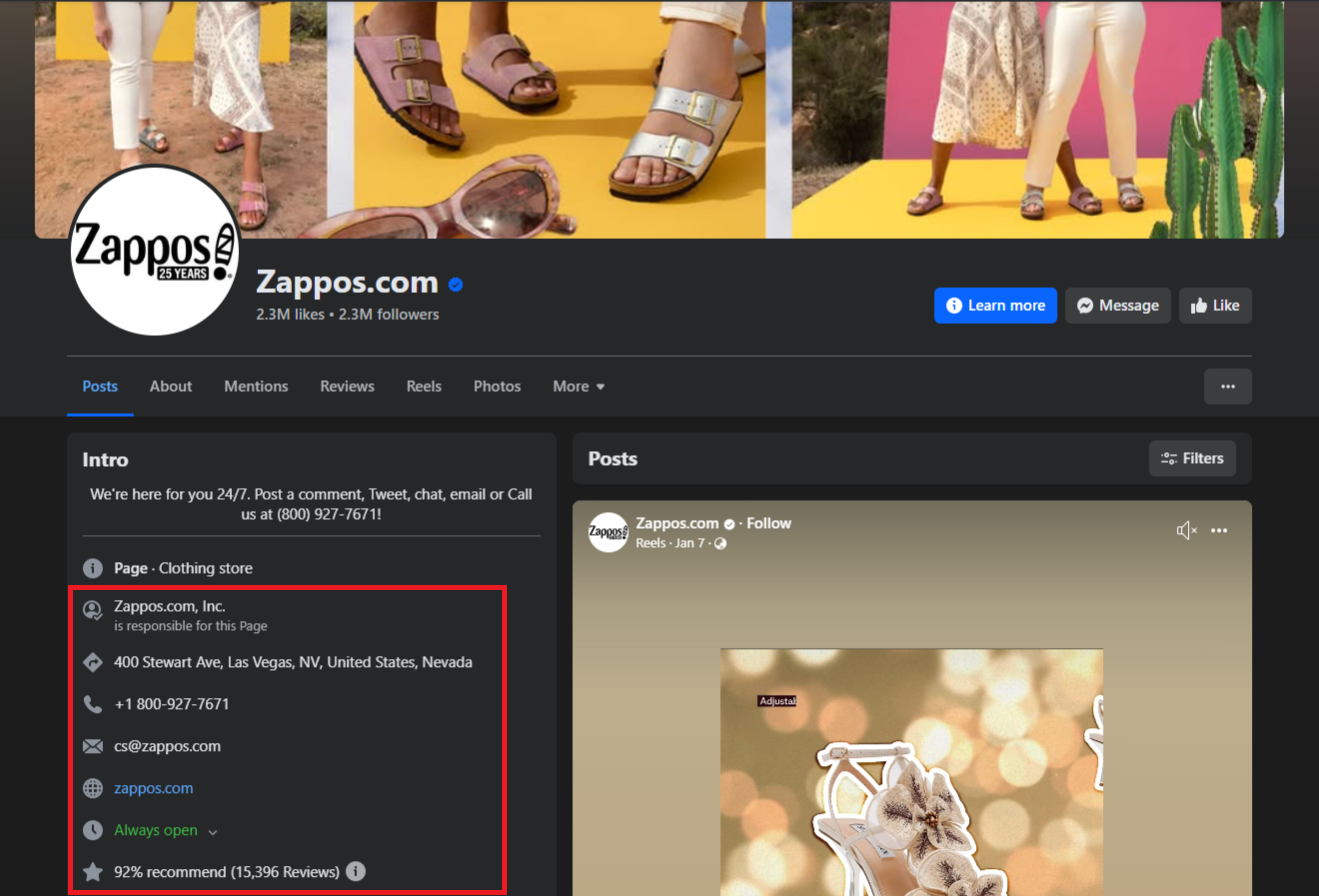
Step 8: Monitor Your Citations Regularly
Building citations doesn’t stop once your business is listed on a few directories. You’ll need to monitor your citations regularly to ensure they stay accurate and up-to-date.
Over time, directories can update their forms, duplicate listings might pop up, or your info might change, which may lead to inconsistent information.
- Audit your citations every few months.
- Use tools like Moz Local or BrightLocal to track your listings and ensure everything remains consistent.
- Fix errors or inconsistencies as soon as you spot them to keep your SEO strong.
💡 Heads-Up: Pay special attention to your NAP on aggregators since their mistakes can ripple across multiple platforms.
Step 9: Explore Advanced Opportunities
To go above and beyond, consider getting your business mentioned in local blogs, news outlets, or event listings. Mentions in these contexts act as citations, helping build both trust and local authority.
Here are a few examples of business citations in news outlets across different scenarios:
- Tech: “According to a press release from TechX Innovations, the new app promises to improve productivity by offering real-time collaboration and end-to-end encryption, making it a valuable tool for small businesses.”
- Retail: “Bright Home Furnishings has seen a 25% increase in online sales, as highlighted in their recent store update, after launching their new sustainable collection made from recycled materials.”
- Automotive: “GreenDrive Motors has expanded its showroom to accommodate the growing demand for electric vehicles, offering a range of models designed for eco-conscious drivers.”
- Food: “Bella’s Bistro, known for its commitment to local sourcing, recently launched a new plant-based menu, featuring fresh, organic ingredients from nearby farms.”
- Fashion: “Luxe Apparel Boutique’s collaboration with local designer Anna Claire resulted in a stunning new collection made from upcycled fabrics, meeting the increasing demand for sustainable fashion in the city.”
Look for opportunities to get your business featured in online publications, community events, or even social media shoutouts from local influencers. These advanced strategies can further boost your online presence.
Step 10: Stay Consistent and Patient
Finally, remember that building citations is a marathon, not a sprint. They may take time but the rewards are worth it.
The more consistent and widespread your citations, the more search engines — and customers — will trust your business.
As long as you stay consistent and accurate, you’ll see positive results in your local search rankings.
The Role of Data Aggregators in Local Citations
In the process of building local citations, data aggregators play a pivotal role. But what exactly are data aggregators, and how do they impact your local SEO efforts?
Data aggregators are companies that collect and distribute business information to various online directories and platforms. The four major data aggregators in the US are:
- Data Axle (formerly Infogroup)
- Neustar Localeze
- Foursquare
- Yodlee
These aggregators gather business data from various sources, including government databases, utility records, and business listings. They then share this information with a network of online business directories, apps, and search engines.
How Data Aggregators Impact Local SEO
So, how do data aggregators impact your local SEO efforts?
When you submit your business information to data aggregators, they distribute it to their network of directories and platforms. This can help ensure that your NAP information is consistent across the web, which is a key factor in local search rankings.
However, it’s important to note that submitting to data aggregators is not a one-and-done solution. It can take time for your information to be distributed and updated across all sources.
Plus, not all directories and platforms rely on data aggregators for their information.
That’s why it’s still crucial to actively manage your citations and submit your information directly to key directories and platforms in addition to working with data aggregators.
By adopting a multi-pronged approach, you can maximize your citation accuracy and consistency for better local SEO results.
How Citations Influence Local Search Rankings
If you’re looking to boost your local search rankings, building local citations is a must.
Search engines like Google use local citations as a way to verify the existence and credibility of your business. The more high-quality, consistent citations you have, the more likely you are to rank well in local search results.
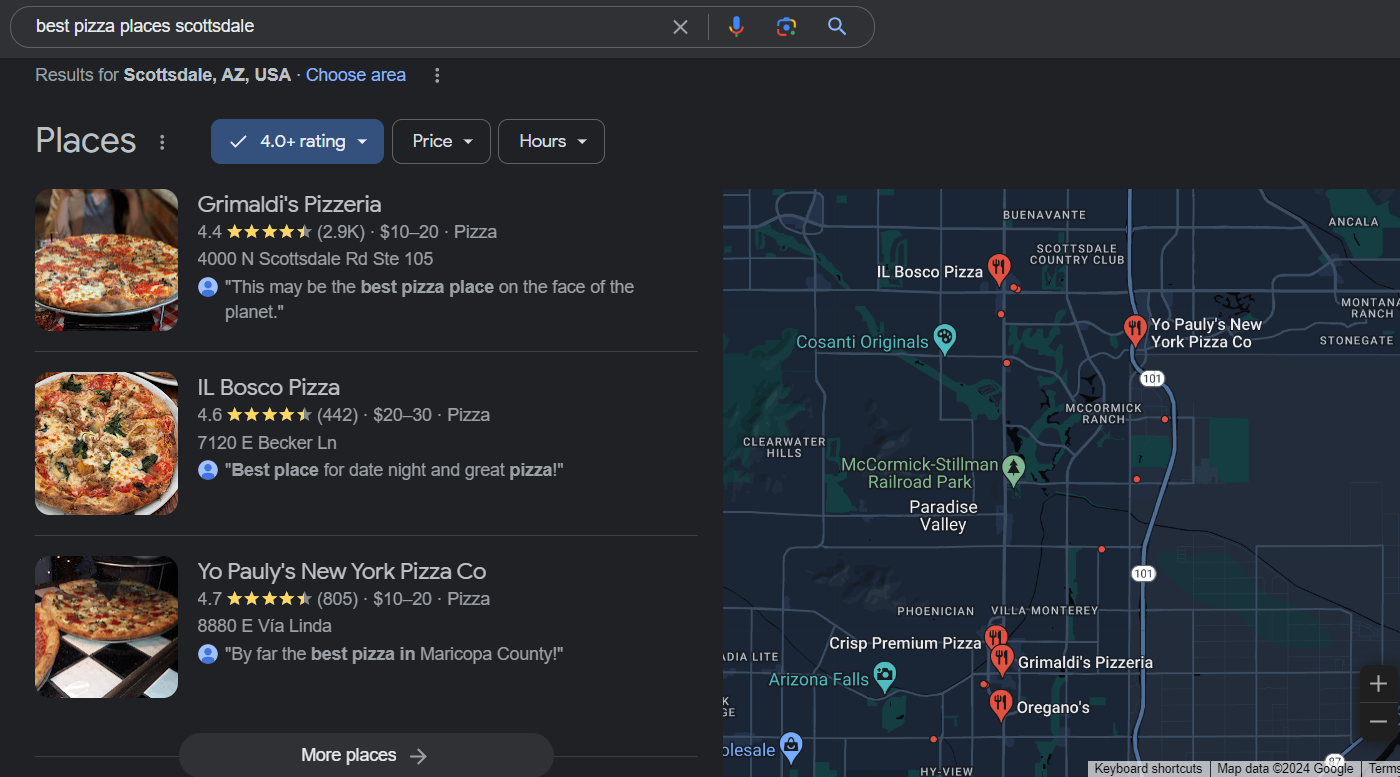
According to a study by BrightLocal, citation signals account for 7% of the overall ranking factors for local SEO.
But it’s not just about quantity. The quality and relevance of your citations matter too.
A citation from a well-established, industry-specific directory will carry more weight than a spammy, low-quality one.
The Impact of Local Citations on Your Online Presence
Building local citations isn’t just about boosting your search rankings. It can also have a significant impact on your overall online presence and reputation.
Building Trust and Credibility
When potential customers search for a local business, they want to know that they can trust the results.
Having consistent, accurate citations across reputable directories can go a long way in building that trust.
Think about it – if a customer sees your business listed on well-known platforms like Google My Business, Yelp, and industry-specific directories, they’re more likely to view you as a credible, established business.
Driving Targeted Traffic
Local citations don’t just help with search rankings – they can also drive targeted traffic directly to your business. Many directories allow you to include a link to your website, making it easy for potential customers to learn more about your products or services.
Plus, some directories like Yelp have a loyal user base that relies on the platform to find and research local businesses. By optimizing your listings on these sites, you can tap into a new source of highly targeted traffic.
Enhancing Your Local Reputation
Finally, local citations can play a key role in managing and enhancing your online reputation. Many directories allow customers to leave reviews and ratings, which can have a big impact on how potential customers perceive your business.
By monitoring your citations and actively managing your reviews (responding to both positive and negative feedback), you can showcase your commitment to customer satisfaction and build a strong, positive reputation in your local market.
Best Practices for Managing Local Citations
Now that you know the importance of local citations, let’s dive into some best practices for managing them effectively.
Keep Your Business Information Up-To-Date
If your business information changes (like moving to a new address or changing your phone number), it’s important to update your citations as soon as possible. Inconsistent NAP information can confuse both search engines and potential customers, hurting your local SEO efforts.
Using a listings management tool can streamline this process by allowing you to submit updates to multiple directories at once. Just be sure to keep your information consistent across all platforms, including your website and social media profiles.
Fix Duplicate Listings
Duplicate listings can be a major headache for local businesses. They can dilute your SEO efforts and even lead to incorrect information being displayed to potential customers.
If you come across any duplicate listings, it’s important to address them promptly. You can either claim the listing and update the information or reach out to the directory to have it removed.
Again, citation management tools can be a lifesaver here by helping you identify and clean up any duplicate listings quickly and efficiently.
Combine Citations with Other Local SEO Strategies
While citations are a key piece of the local SEO puzzle, they work best when combined with other strategies. This includes:
- Building local backlinks
- Creating localized content
- Encouraging customer reviews
One of the best ways to get customers and other businesses to mention you and link back to your site is to create good content.
Here are 8 ways to attract more local citations:
- High-Quality Content: Creating valuable, informative content can attract citations naturally. When other websites find your content useful, they may mention your business or link to your content as a reference, which can lead to citations.
- Guest Blogging: Contributing guest posts to relevant websites allows you to include your business’s NAP in the author bio or within the content itself. If the guest post is published, it creates a citation back to your business.
- Press Releases: Distributing press releases about significant events or developments within your business can lead to citations when news outlets or industry websites report them on the local news.
- Social Media Engagement: Actively engaging on social media platforms and sharing valuable content can lead to mentions and citations from followers or other businesses.
- Infographics and Visual Content: Creating shareable infographics or visual content can increase the likelihood of other websites embedding your content, which includes a citation.
- Networking and Partnerships: Building relationships with other businesses, influencers, or industry leaders can result in mentions or collaborations that lead to citations.
- Local Sponsorships and Events: Sponsoring local events or participating in community activities can generate citations from event listings, sponsor pages, or local news coverage.
All of these tactics may sound overwhelming, but it doesn’t have to be with a tool like BrandWell. BrandWell provides tools to simplify content creation and help you produce material that has a higher chance of being mentioned or linked to
By tackling local SEO from multiple angles, you’ll be able to maximize your visibility in local search results and attract more targeted traffic to your business.
FAQs: What Are Citations in SEO?
Are citations important for SEO?
Yes, citations are important for SEO because they help search engines verify your business information, improve local rankings, and increase visibility in local search results. Consistent and accurate citations can boost your credibility and trustworthiness online.
How to get citations for SEO?
To get citations for SEO, start by submitting your business to major online directories like Google Business Profile, Yelp, and Bing Places. Additionally, claim listings on local and industry-specific directories, and ensure your Name, Address, and Phone Number (NAP) are consistent across all platforms. You can also leverage data aggregators and review sites for additional citation opportunities.
What are citations and backlinks?
Citations are online mentions of your business’s Name, Address, and Phone Number (NAP) on other websites, directories, or platforms, helping search engines verify your business’s existence and location.
Backlinks, on the other hand, are links from one website to another. They are a form of endorsement, signaling to search engines that your content is valuable, which can improve your site’s authority and search engine ranking.
While citations focus on business information, backlinks focus on content relevance and quality.
What is a citation in off-page SEO?
In off-page SEO, a citation refers to any mention of your business’s Name, Address, and Phone Number (NAP) on websites, online directories, or platforms, even if there is no direct link to your website. Citations help search engines verify your business information, enhance local search rankings, and boost credibility, contributing to overall SEO performance, especially for local businesses.
Conclusion
Citations are a powerful tool for boosting your local search visibility, building trust with potential customers, and enhancing your overall online presence.
These mentions of your business name, address, and phone number (NAP) on various web platforms, even without backlinks, contribute significantly to local search rankings.
By ensuring consistent and accurate citations across the internet, you can improve the chances of your business being found by potential customers, gain trust from search engines, and ultimately drive more traffic to your websites.
As part of a comprehensive local SEO strategy, prioritizing and managing citations effectively can lead to better local search performance and a stronger online presence.

